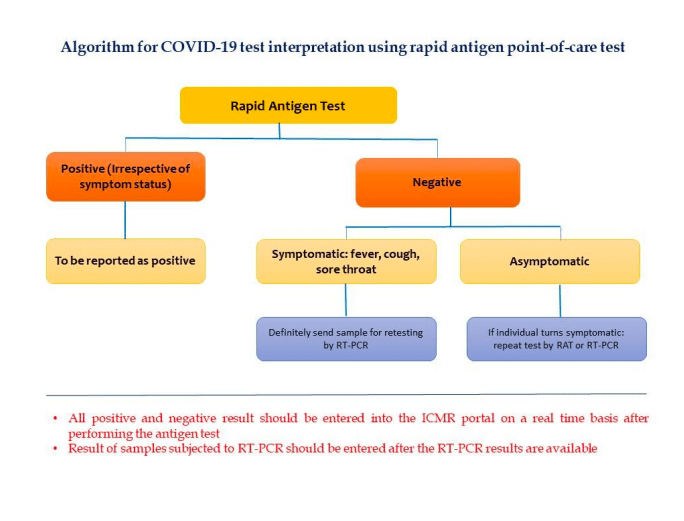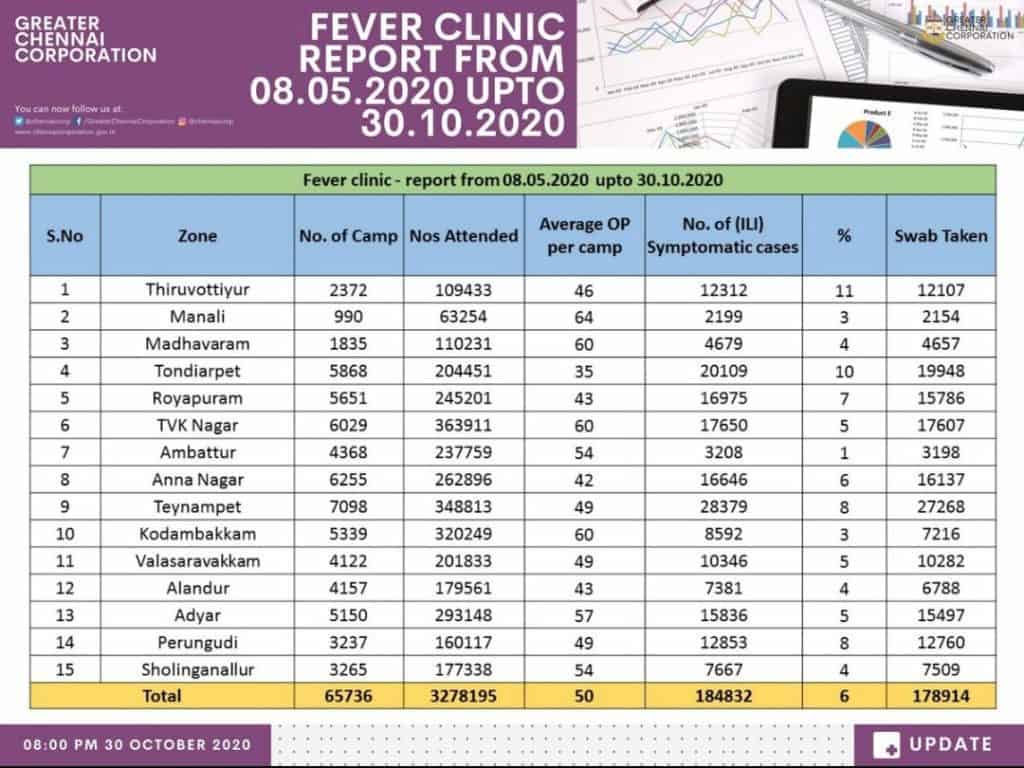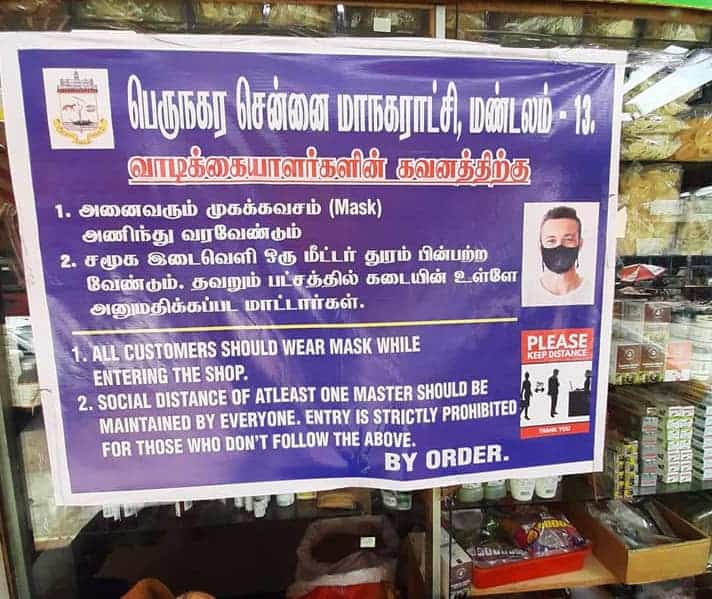Chennai has seen a decline in the number of COVID-19 cases in October with the number of active cases on November 1st at 7005. The city has till date seen over two lakh cases since the reporting of the first ever case in March.
The response to the pandemic has been dynamic, and there has been an evolving strategy in place with regard to testing, treatment and preventive measures.
Here is a round-up of the latest protocols in place.
Testing protocols
Testing protocols as devised by the Indian Council for Medical Research have been adhered to since the start of the pandemic. The testing strategy was last updated on September 9, 2020.
In some cases, ICMR recommends carrying out a faster Rapid Antigen Test (RAT) as in the case of surveillance in containment zones. Based on the results of the RAT, a decision on the carrying out of an RT-PCR test can be determined.

According to the latest testing protocol of ICMR, testing must be carried out for:
- All symptomatic individuals.
- All asymptomatic direct and high-risk contacts of a laboratory-confirmed case to be tested once between day 5 and day 10 of coming into contact. These include those in the family and workplace, elderly individuals of age 65 years or more, immunocompromised individuals, those with co-morbidities etc.
- All asymptomatic high-risk individuals including elderly individuals 65 years of age and those with co-morbidities in containment zones.
- Asymptomatic high-risk patients who are hospitalized or seeking immediate hospitalization such as immunocompromised individuals, patients diagnosed with malignant disease, transplant patients, patients with chronic co-morbidities, elderly over 65 years of age and patients undergoing surgical / non-surgical invasive procedures.
- Patients presenting with atypical manifestations such as stroke, encephalitis, hemoptysis, pulmonary embolism, acute coronary symptoms, Guillain Barre syndrome, Multiple Organ Dysfunction Syndrome, progressive gastrointestinal symptoms, Kawasaki Disease (in pediatric age group) based on the discretion of the treating physician.
Testing for pregnant women and neonates:
All pregnant women in/near labour who are hospitalized for delivery are to be tested. No emergency procedure (including deliveries) should be delayed for lack of test. However, sample can be sent for testing if indicated as above (1-13), simultaneously.
Pregnant women should not be referred for a lack of testing facility. All arrangements should be made to collect and transfer samples to testing facilities.
Mothers who test positive for COVID-19 should be advised to wear a mask and undertake frequent hand-washing while handling their baby for 14 days. They should also be advised on breast cleaning before feeding the neonate.
In addition to the above categories, testing has been opened up for the general population. All individuals who wish to get themselves tested can do so without a prescription of a physician. Individuals are advised to exercise sound judgement so as to not overwhelm the healthcare system.
If Chennaiites wish to get a test, the list of labs accredited by the Indian Council for Medical Research (ICMR) can be found here.
List of labs testing for COVID-19 in Chennai:
| Name of lab | Address | Contact |
| Hitech Diagnostic Centre | 930, Poonamallee High Road, Chennai | 044-4351 8505 |
| Department of Laboratory Services, Apollo Hospitals Enterprise Ltd | 21, Greams Lane, Thousand Lights, Chennai | 044-44442424 |
| Neuberg Ehrlich Lab Pvt Ltd | 46, Masilamani Road, Balaji Nagar, Chennai | 9700369700 |
| Sri Ramachandra Medical College & Research Institute | 1, Ramachandra Nagar, Porur, Porur, Chennai | 044-45928500 |
| YRG CARE | 15/34, Taramani Station Rd, Taramani, Chennai | 044-22542254 |
| Medall Healthcare Pvt Ltd | 17, Race View Colony, 2nd street, Race Course Road, Guindy, Chennai | 044-45927777 |
| Metropolis Healthcare Limited | 3, Jaganathan Road, Nungambakkam, Chennai | 044-42925555 |
| Clinical Lab Services, Dr. Rela Institute & Medical Centre | 7, CLC Works Rd, Shankar Nagar, Chennai | 9384681770 |
| Premier Health Center | 963, Poonamallee High Road, Purasawalkam, Chennai | 044-42174176 |
| Balaji Medical Centre | 4/18 , Jagadeeswaran Street, T.Nagar, Chennai | 044-24364651 |
| VRR Diagnostics | 87, Burkit Road, T. Nagar, Chennai | 044-24346696 |
| Lifecell International Pvt Ltd | 26, Vandalur – Kelambakkam Main Road, Keelakottaiyur, Chennai | 1800-265533 |
| Central Laboratory, Sree Balaji Medical College and Hospital | 7, Works Road, Chromepet, Chennai | 044-42911000 |
| Aarthi Scans and Labs | 60, 100 feet road, Vadapalani, Chennai | 7550075500 |
Home collection of samples is also being carried out by select private labs in the city.
Travel and quarantine norms for domestic and international travellers
E-pass is no longer essential for domestic and international travellers who enter Tamil Nadu. However, travellers must complete an e-registration providing basic details such as address and contact information. The process is automated and the registration can be done here.
International passengers flying into the state must carry a negative RT-PCR certificate, issues within 96 hours before their departure. If the individual is unable to take a test at the country of origin then they must use the testing facility set up at the Chennai airport to take a test.
All passengers must undergo mandatory home quarantine for 14 days. Those who are unable to quarantine at home may opt for institutional quarantine.
Domestic passengers flying into the state do not require a negative RT-PCR test. The passengers must undergo a 14-day home quarantine on arrival into Tamil Nadu. Those who are found to be symptomatic on arrival via thermal screening will be required to undergo an RT-PCR test.
Business travellers visiting Tamil Nadu for a short stay of 72 hours are exempt from home quarantine norms. In such cases, the individual must furnish a valid return document.
Those travelling by rail and road must also undergo 14-day home quarantine and monitor for any symptoms.
Status of containment zones
Containment zones were a key part of the strategy of the Chennai Corporation in fighting the spread of COVID-19 in the city. During the early days of the pandemic, the city saw over 500 zones that were marked as containment areas. Here the civic body imposed restrictions on movement of individuals.
Volunteers undertook door to door surveys and households that saw individuals display any ILI symptoms were tested. The restrictions also meant that the civic body took charge of essential supplies and emergency services in these areas.
The drop in the number of containment zones also came about in June when the criteria for demarcation was increased to five index cases in an area. Previously even a single positive test resulted in the demarcation of the street where the individual resided as a containment zone. The restrictions were in place for periods of time ranging between 14 and 28 days.
With the decline in number of COVID-19 cases in the city, there are only four zones now that have been marked as containment zones. Thirteen of the city’s fifteen administrative zones do not have any areas marked as containment.
Fever camps
In order to screen for potential infections and ensure that testing is accessible to all, the Chennai Corporation began conducting fever camps in April. The camps helped doctors identify patients who could be infected by the coronavirus and recommended them for further testing and treatment.
Early detection of symptomatic individuals was possible through fever camps. The camps are held in the urban primary health centers of each area.

Since the unlock, as many individuals have been unable to take time off during working hours, fever camps have also been organised in the evenings for easy access.
The schedule for the fever camps can be accessed here.
Fines for violations
With the unlock phase allowing for free movement and the opening of most shops and establishments, masking and following physical distancing norms became paramount in order to prevent the transmission of the virus in public settings. However, this has proven to be a challenge, especially in crowded shopping areas and during the festive season.

In order to enforce masking and physical distancing, the Chennai Corporation began imposing fines on violators.
The fines stood at:
Violating quarantine: Rs 500
Violating distancing : Rs 500
Not wearing a mask: Rs 200
Not wearing a mask in containment zones: Rs 500
Spitting in public : Rs 500
Shops and establishments violating COVID SoPs: Rs 5000
The civic body has thus far collected Rs 2.65 crore as fine from all zones from both individuals and shops and establishments that have violated COVID-19 prevention norms.
Also read:
COVID-19 in numbers: Has Chennai flattened the curve?
Excellent article, very informative